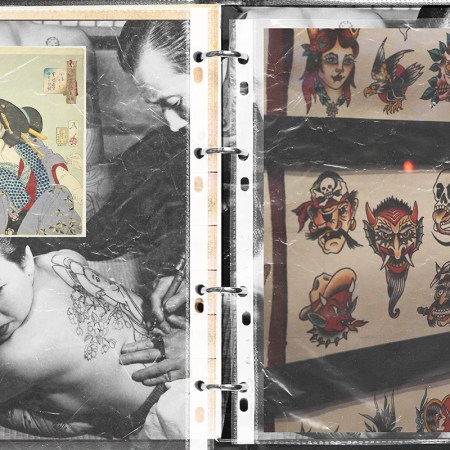When it was announced Thursday that Jerry Springer, notorious host of the wildly popular talk show (emphasis on “wild”), died from pancreatic cancer at 79, the internet didn’t know how to respond. Millennials were split: Some mourned the loss, citing how Springer’s show invited candid discussion about — and sometimes fistfights over — topics like race. The takes from queer corners of Twitter, however, were decidedly less fond, with some accusing his show of breeding transphobia for generations to come.
The Jerry Springer Show was both a massive hit and a punchline of its own making, racking up millions of views and being crowned the worst show on TV by TV Guide magazine in 2002. It ran from 1991 to 2018, airing over 3,000 episodes that produced countless outrageous, can’t-look-away moments like the time a KKK member was punched in the face on stage. But of the many tropes that emerged over the show’s decades on air, the “big reveal” might have been most frequent, featuring dramatic unveilings of secrets and lies — whether it be cheating scandals or trans women who had hidden their gender transitions from their partners.
The latter inflicted deep wounds in some queer Millennials, who might have caught the show while home sick from school throughout the ’90s and early 2000s. “I don’t think anything else kept me in the closet longer than the way Jerry Springer sensationalized trans people into a mockery for profit,” Alejandra Caraballo wrote on Twitter.
“Jerry Springer’s show was one of my first ever exposure to trans women,” wrote Katelyn Burns. “The memories of his crowds jeering those poor desperate women has stayed with me for decades. I feel nothing about his passing.”
The Rise and Fall (And Rise Again) of Cameo
During the pandemic, millions of people used the service to send fun, COVID-safe gifts to friends and family. But now that we’re seeing each other in person again, is there still a need?In its own way, The Jerry Springer Show molded and warped modern American intimacy. The show took private behavior and made it public business, sensationalizing adultery and transgender trauma, and normalizing aggression in place of rational, respectful discussion. When he was alive, Springer — memorialized by the New York Times as a “populist” TV host — often said he had merely provided a platform for regular people to be heard. Others, like many queer advocates on Twitter, felt his show weaponized shame and humiliation as punishment for breaching norms. And whether it was disenfranchised trans women or cis women caught up in sexual scandals, the show, intentionally or not, exaggerated and mocked femininity, playing up stereotypes and preying upon insecurities for the biggest possible reaction.
To accuse Jerry Springer of single-handedly engineering the downfall of decency on TV would be wrong, however. Separately, the man’s life outside of the show was actually fascinating: He was the child of Jewish refugees who escaped Nazi Germany, and he grew up to be mayor of Cincinnati. Before The Jerry Springer Show, he won several accolades for his news reporting. He once wrestled a black bear.
His show was both a blight on media history and a reflection of the uncertainty of our times, as more people than ever have the chance to live authentically and an equal number of people have the chance to loudly disapprove. No matter how you feel about his legacy, his parting words on the show’s 25th anniversary episode resonate: “What I’ve learned over our quarter century of shows is that deep down we are all alike…. We all want to be happy, we cry when we’re hurt, we’re angry when we’ve been mistreated, and to be liked, accepted, and respected, not to mention loved, is the greatest gift of all. Yes, we’re all alike.”
Thanks for reading InsideHook. Sign up for our daily newsletter and be in the know.


















